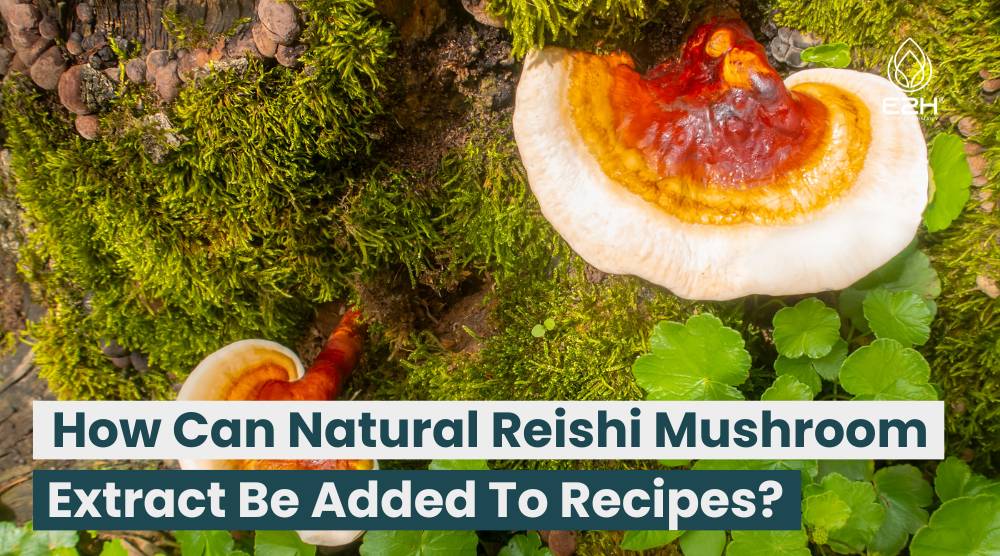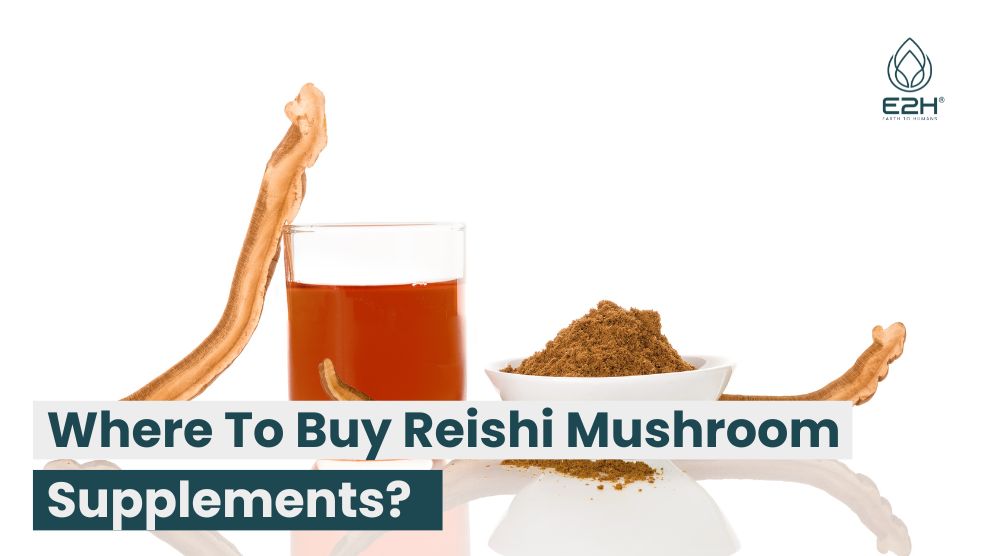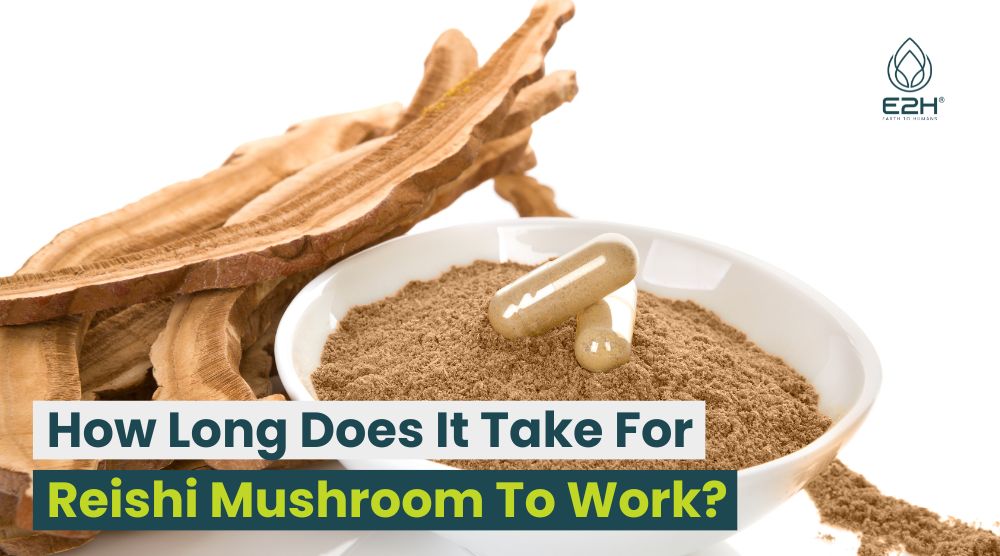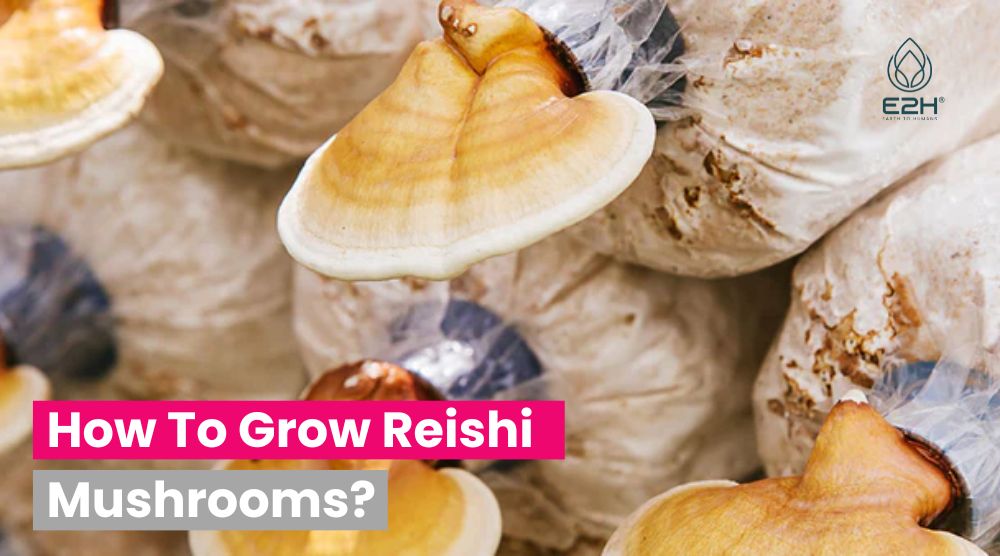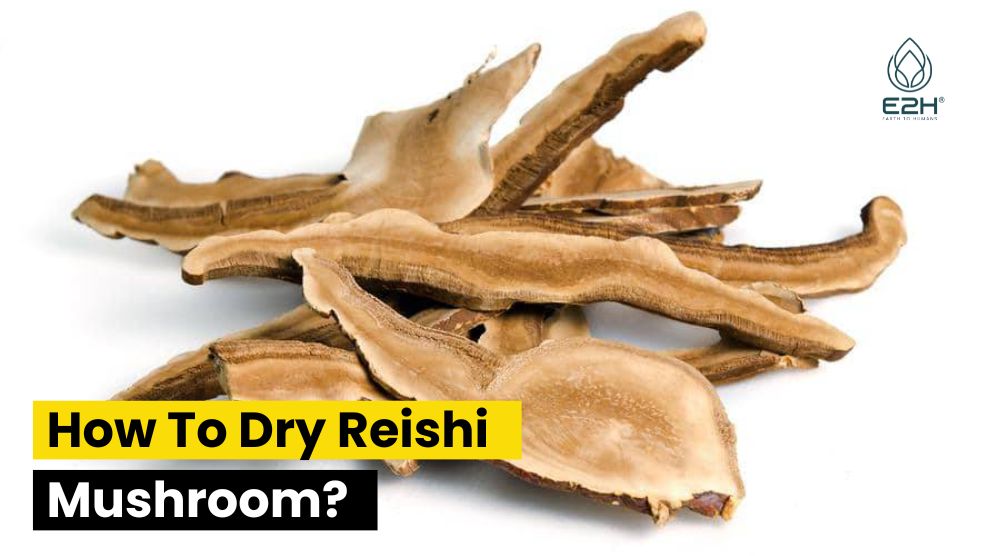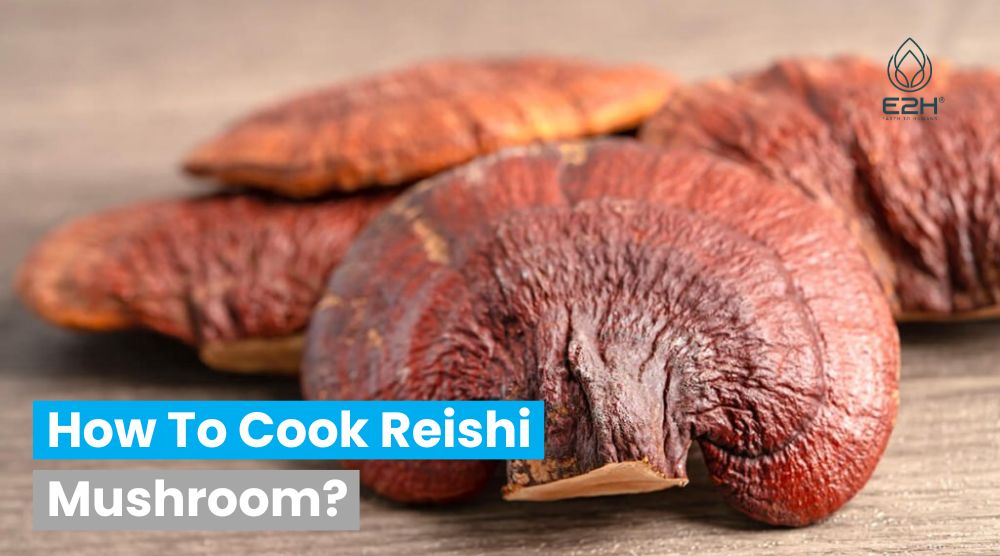What Are The Potential Side Effects Of Reishi Extract: Potential side effects of Reishi extract include dry throat, nosebleeds, and upset stomach.
To understand these effects and their impact, continue reading to ensure safe and informed use of this natural supplement for overall well-being and immune support.
What Are The Risks Of Taking Reishi Mushroom Extract?
Risks of Taking Reishi Mushroom Extract:
- Allergic Reactions: Reishi extract may trigger allergic responses in some individuals. Symptoms can range from mild itching to severe reactions such as difficulty breathing. If you have a history of allergies, exercise caution and consult a healthcare professional.
- Blood-Thinning Effects: Reishi may act as a blood thinner, potentially enhancing the effects of anticoagulant medications. Individuals taking blood-thinning medications like Warfarin should carefully monitor their dosage under medical supervision.
- Gastrointestinal Issues: Some users report mild digestive disturbances, including upset stomach or diarrhea, upon consuming Reishi extract. Adjusting dosage or discontinuing use may alleviate these issues.
- Lowered Blood Sugar: Reishi has demonstrated blood sugar-lowering effects. Diabetic individuals should monitor their blood glucose levels closely, as it may interact with diabetes medications.
- Interaction with Immune System: Reishi enhances immune system activity, which may be problematic for individuals with autoimmune disorders. Consult a healthcare professional before use, especially if undergoing immune-suppressive treatments.
- Pregnancy and Breastfeeding: Limited research exists on Reishi’s safety during pregnancy and breastfeeding. Due to potential risks, pregnant or breastfeeding individuals should avoid Reishi extract unless approved by a healthcare provider.
- Liver Function Concerns: Some studies suggest Reishi may impact liver enzymes. Individuals with liver conditions should exercise caution and consult with their healthcare provider before incorporating Reishi extract into their regimen.
- Interactions with Medications: Reishi may interact with certain medications, including immunosuppressants, anticoagulants, and antiplatelet drugs. Consultation with a healthcare professional is crucial to avoid potential adverse reactions.
- Quality of the Product: The safety of Reishi extract depends on the quality of the product. Contaminants, improper processing, or mislabeling can pose additional risks. Choose reputable brands and ensure the product undergoes quality testing.
- Dosage Considerations: Consuming excessive amounts of Reishi extract may lead to toxicity. Adhere to recommended dosage guidelines, as excessive intake can result in adverse effects, including nausea, vomiting, and dizziness.
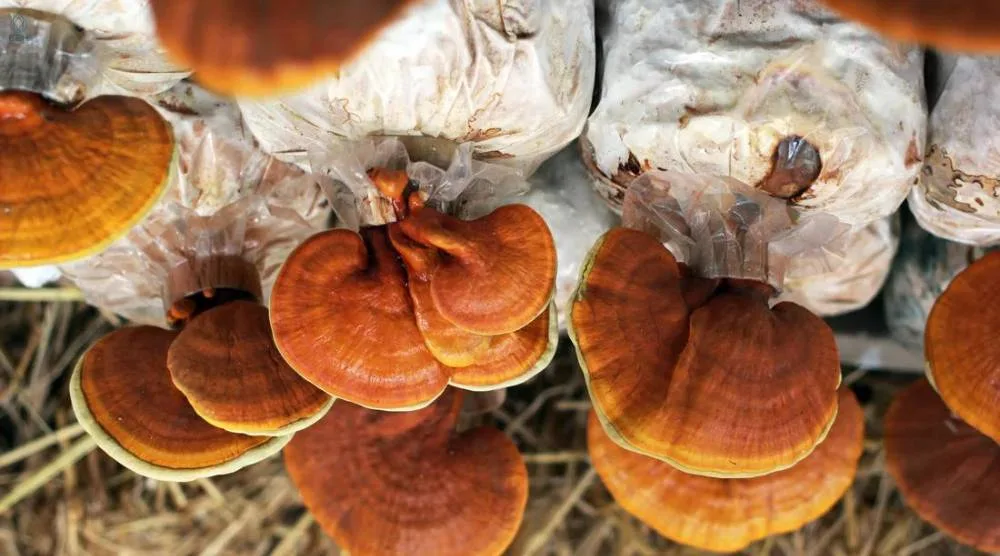
How Does The Fda Regulate Dietary Supplements Like Reishi Mushroom?
The FDA regulates dietary supplements, including Reishi Mushroom, under the Dietary Supplement Health and Education Act (DSHEA) of 1994. Unlike pharmaceuticals, supplements do not undergo pre-market approval for safety and efficacy.
Manufacturers are responsible for ensuring product safety, quality, and accurate labeling. The FDA intervenes if a supplement poses a significant risk to public health, investigating and, if necessary, removing unsafe products from the market.
However, the onus primarily falls on manufacturers to adhere to Good Manufacturing Practices (GMPs) and report adverse events. Consumers should choose reputable brands and consult healthcare professionals before incorporating supplements into their regimen.
What Are The Considerations Of Taking Reishi Mushrooms?
Before incorporating Reishi mushrooms into your regimen, several considerations should be taken into account. Firstly, individuals with known allergies should exercise caution, as Reishi may trigger allergic reactions.
Moreover cancer patients, those on anticoagulant medications must be mindful of potential drug interactions too, given Reishi’s blood-thinning effects. Digestive concerns, albeit usually mild, may arise, prompting adjustment of dosage or discontinuation. Additionally, individuals with autoimmune disorders should consult healthcare professionals due to Reishi’s immune-enhancing properties.
Pregnant or breastfeeding individuals should err on the side of caution, and those with liver conditions should seek advice due to potential impacts on liver enzymes. Always consult healthcare providers before integrating Reishi mushrooms for personalized guidance.
Are There Any Known Risks For Pregnant Or Breastfeeding Individuals Taking Reishi Mushrooms?
Limited research exists on the safety of Reishi mushrooms during pregnancy and breastfeeding. While some studies suggest potential benefits, the lack of comprehensive data raises concerns. Due to uncertainties surrounding its effects on fetal development and potential transfer into breast milk, it is advisable for pregnant and breastfeeding individuals to err on the side of caution and consult healthcare professionals before incorporating Reishi mushrooms into their routine. Personalized guidance can help weigh potential risks against benefits, ensuring the well-being of both mother and child.
Why Might Some People Consider Reishi Mushrooms Toxic?
Some individuals might perceive Reishi mushrooms as toxic due to several factors. Firstly, the presence of mycotoxins, natural compounds produced by fungi, can vary in mushrooms. Additionally, improper preparation or ingestion of wild-harvested Reishi mushrooms may lead to adverse effects.
While Reishi is generally considered safe, the perception of toxicity may also stem from individual sensitivities or allergies. To ensure safety, it is crucial to source Reishi from reputable suppliers, follow proper preparation methods, and consult healthcare professionals if any concerns arise.
How Do Reishi Mushrooms Interact With Medications And Other Health Conditions?
Reishi mushrooms can interact with medications and health conditions, warranting careful consideration. Notably, individuals taking anticoagulant medications or those with bleeding disorders should be cautious due to taking Reishi mushroom’s potential blood-thinning effects.
Moreover, it may interact with immunosuppressants, impacting the immune system. Diabetics should monitor blood sugar levels, as Reishi can both lower blood pressure and glucose. Individuals with autoimmune disorders may experience heightened immune responses.
Always consult healthcare professionals, disclose current medications, and address underlying health conditions to ensure the safe incorporation of Reishi mushrooms into one’s wellness regimen.
What Is The Recommended Dosage Of Reishi Mushroom?
The optimal dosage of Reishi mushroom can vary, and it’s essential to consider factors like individual health, product potency, and intended purpose. Typically, a common dosage for Reishi extract ranges from 1 to 2 grams daily, while capsules may suggest 1 to 1.5 grams.
However, individual responses differ, and it’s advisable to start with a lower dose, gradually increasing while monitoring for any adverse effects. Consulting healthcare professionals ensures personalized guidance, addressing specific health needs and maximizing the potential benefits of integrating Reishi mushroom into one’s wellness routine.
How Can Reishi Mushroom Affect The Immune System?
Reishi mushroom exerts profound effects on the immune system, primarily through its beta-glucans and polysaccharides. These compounds stimulate immune cells, enhancing their activity and promoting a balanced immune response.
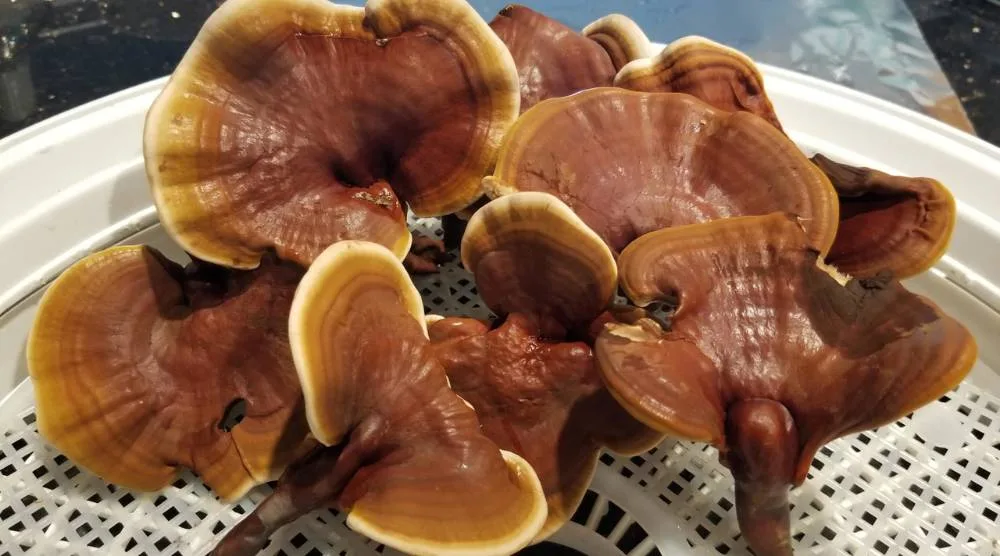
Reishi’s adaptogenic properties contribute to immune modulation, helping the body adapt to various stressors. By promoting and boost the immune system and production of key immune proteins, Reishi supports the body’s defense mechanisms.
However, individuals with autoimmune disorders should exercise caution, as the heightened immune response may exacerbate underlying conditions. Consulting healthcare professionals ensures a nuanced understanding of how Reishi can positively influence individual immune health.
What Are The Potential Benefits Of Reishi Mushrooms?
Reishi mushrooms, renowned in traditional medicine, offer a spectrum of potential health benefits. Rich in antioxidants, they combat oxidative stress, supporting overall well-being. Their immune-modulating properties enhance the body’s defense mechanisms, potentially reducing susceptibility to infections.
Reishi’s adaptogenic nature aids stress management, promoting a balanced response to environmental challenges. Some studies suggest anti-inflammatory effects, benefiting conditions like arthritis.
Additionally, Reishi may contribute to cardiovascular health by lowering blood pressure and cholesterol levels. However, individual responses vary, and consulting healthcare professionals ensures personalized guidance for maximizing the potential health benefits of incorporating Reishi mushrooms into one’s lifestyle.
What Conditions Can Reishi Mushroom Be Used For?
Reishi mushrooms find application in diverse health contexts. Their immune-enhancing properties make them valuable in supporting immune function, potentially aiding in preventing infections bleeding disorders. The adaptogenic nature of Reishi contributes to stress management, benefiting individuals dealing with stress-related conditions.
Furthermore, studies suggest potential roles in reducing inflammation, managing allergies, and supporting cardiovascular health. While Reishi may offer various health advantages, consulting healthcare professionals ensures a nuanced understanding and safe integration for specific health conditions.
Can Reishi Mushroom Reduce Fatigue And Depression?
Reishi mushroom shows promise in addressing fatigue and depression. Its adaptogenic properties may help combat stress, a common contributor to fatigue and mood disorders. Studies suggest Reishi mushroom’s potential to modulate the release of stress hormones, promoting a sense of calmness.
While research is ongoing, incorporating Reishi into a balanced lifestyle, coupled with professional guidance, may contribute to reducing fatigue and supporting emotional well-being. As with any health consideration, consulting healthcare professionals ensures a comprehensive approach to individual needs.
What Are The Potential Anti-cancer Properties Of Reishi Mushroom Or Ganoderma Lucidum?
Reishi mushrooms exhibit potential anti-cancer properties attributed to bioactive compounds. Polysaccharides and triterpenes in Reishi demonstrate anti-tumor effects by modulating immune responses and inhibiting cancer cell growth.
Some studies suggest Reishi’s role in preventing angiogenesis, limiting blood supply to tumors. Additionally, its antioxidant properties may combat oxidative stress, implicated in breast and lung cancer and cells development. While promising, further research is needed.
Integrating Reishi into a comprehensive health plan, guided by healthcare professionals, may contribute to overall well-being and potential anti-cancer support.
What Are The Possible Benefits Of Reishi Mushrooms According To Traditional Medicine?
Reishi mushrooms, revered in traditional medicine, are believed to be medicinal mushrooms offer diverse health benefits. According to historical practices, Reishi is considered an adaptogen, aiding the body in adapting to stress. It is thought to promote longevity, boost vitality, and support the immune system.
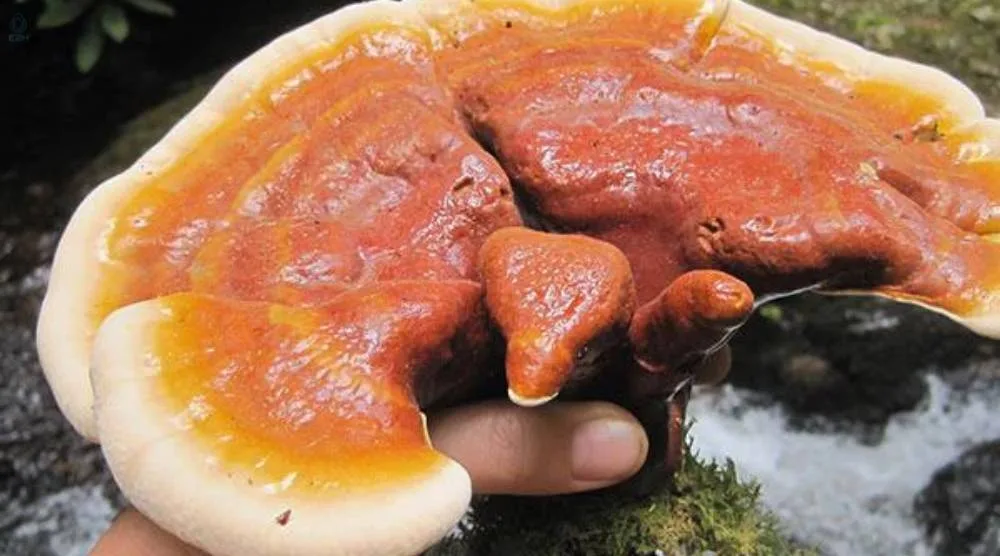
Traditional medicine attributes Reishi with calming properties, alleviating stress and promoting restful sleep. While modern research continues to explore these claims, the longstanding use of Reishi in traditional medicine underscores its perceived value for holistic well-being.
What Are The Potential Side Effects Of Reishi Mushroom Supplements?
While generally well-tolerated, Reishi mushroom supplements may cause mild side effects. These can include digestive issues like upset stomach or diarrhea. In rare cases, individuals may experience allergic reactions, leading to symptoms such as itching or difficulty breathing.
Additionally, due to its potential blood-thinning effects, caution is advised for those on anticoagulant medications. As with any supplement, it’s essential to consult healthcare professionals to ensure safe usage and address individual health considerations.
FAQs For ‘Potential Side Effects Of Reishi Extract’
What are the potential side effects of Reishi extract?
Reishi extract may cause mild digestive issues. Rarely, allergic reactions can occur. Caution is advised for those on anticoagulant medications.
Can Reishi extract lead to allergic reactions?
Yes, allergic reactions such as itching or difficulty breathing can occur, although they are rare.
Are there digestive side effects associated with Reishi extract?
Yes, some individuals may experience mild digestive issues, including upset stomach or diarrhea.
Is Reishi extract safe for individuals on anticoagulant medications?
Caution is advised, as Reishi may enhance the effects of anticoagulants, potentially leading to bleeding issues.
Can pregnant or breastfeeding individuals use Reishi extract safely?
Limited research exists, and caution is recommended. Consultation with healthcare professionals is crucial for personalized guidance.
Conclusion
While exploring the potential side effects of Reishi extract, it’s essential to approach its use with informed caution. Emphasizing open communication with healthcare professionals ensures safe integration into one’s wellness routine. Remember, individual responses vary, and a nuanced understanding of personal health needs guides a well-informed journey. With careful consideration, Reishi extract can be a valuable supplement, contributing positively to overall well-being.


